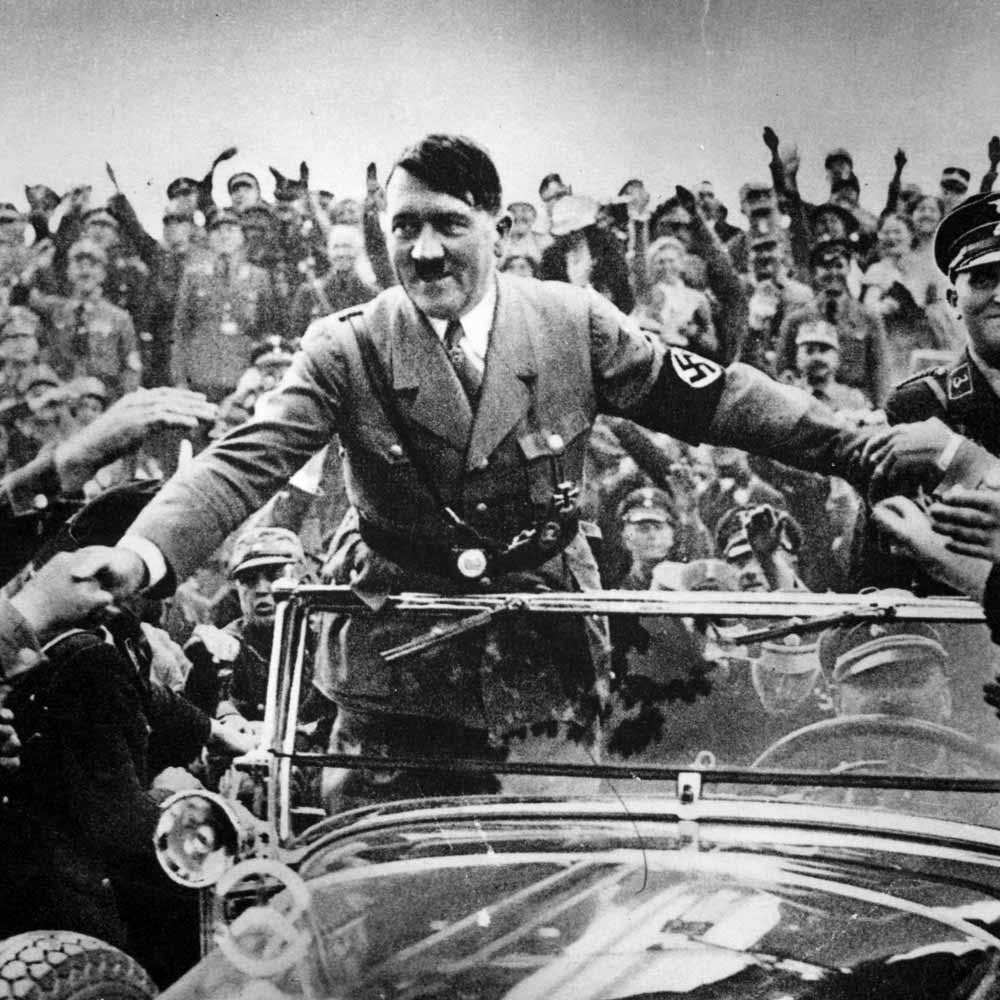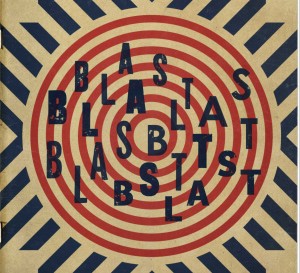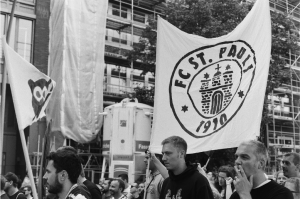
Living in the Third Reich: An interview with Ron Gray
by Daniel Coleman | March 5, 2015
Dr Ronald Gray is a Life Fellow of Emmanuel College, Cambridge. He has been there since joining as an undergraduate in the 1930s, and spent 33 years as a lecturer on German literature, history and philosophy. This Christmas, I met with Ron to discuss one particular period of his life. In 1938, Ron spent three months as a foreign student in Nazi Germany. He experienced German fascism first-hand. He saw and saluted Adolf Hitler.
Born in London in the early 1920s, Ron grew up in what he calls “the nicer part” of Battersea. When he was 18 he was offered a place at Emmanuel College to study German. Just before he came up to Cambridge in 1938, he was invited to spend three months in Munich on a student scholarship. Ron was worried initially by issues of censorship. “When I went over there, I had a book by Edgar Mowrer with me – Germany Puts The Clock Back. I thought they would find that in my baggage, but they didn’t.”
Indoctrination was part of everyday life, even if it came in piece-meal servings. Ron’s landlady in Munich was a widow of a university professor. “Every morning after breakfast, she would give me a heavy dose of Nazi propaganda. Well, of course I took none of it in, but if nothing else it was good for my German.”
Much of Ron’s experience of the regime was more sinister. While in Nuremberg, Ron was asked to leave his hostel in preparation for the annual Hitler Youth rally. As he was leaving the city, he began chatting with one man at the train station. This was one of his more memorable encounters, reflecting the darker side of the Third Reich. “After I told him where I was from, he said to me quite earnestly, ‘England’s ruled by the Jews of course.’ Obviously, I asked him what on earth he meant by that. ‘Look at The Times,’ he said, ‘spell it backwards: S-E-M-I-T.’”
Ron also stressed the complexities of many people’s relationship to racist ideology: “I saw some propaganda from Der Stürmer [Streicher’s anti-semitic newspaper] plastered across the bus stop. I said to the lady I was staying with ‘Well, surely you can’t defend that?’ She said, ‘Well, yes. But it’s the only way you can make people understand.’ But do you know, when I got back to England, the very same woman asked me if I could help her Jewish friend to come to Britain. Things were very complicated.”
In some areas of the Reich, Ron found that politics was not such a major part of everyday life. Hiking in the mountains near Innsbruck in Austria, the greeting Ron heard was always “Grüß Gott”, and never “Heil Hitler”. He was advised not to wear his scout-badges on account of the Nazis’ ban on independent youth organisations, but no one seemed to mind them there. What is striking – and sometimes shocking – in Ron’s account is the ambivalence, even the wilful ignorance, of many he met in Germany who were prepared to overlook aspects of the new state. Ron once asked his landlady about Dachau, the first of the German concentration camps. Her response, or rather reflex, sounds disturbingly naïve to us: “That’s where they send people who don’t understand Nazism.”
Some people did express discontent with the regime, but often only tacitly. “Another case was where I went to a procession with the family I was with. I remembered that old phrase about how the Romans kept their people happy: “Bread and Circuses”. I thought it was an interesting analogy, so I jotted it down in my notebook. They saw me doing this and asked what I was writing. When they saw it, the mother said ‘Ja, ja, ja’ but nothing else. They wouldn’t say more than that… People with any objections just couldn’t say anything.
For foreign visitors to Hitler’s Germany like Ron, temporary acquiescence to the regime seemed necessary, though this could have troubling consequences. At one point during his stay, Ron was outside a cafe in Munich with his friends, when Adolf Hitler passed them in an open-topped car. He recounts giving the Nazi salute. “I did do that. Yes. I was so ashamed. It really shows you… I don’t know what it was. I certainly detested Hitler; I had no feeling for him at all.”.
In the autumn of 1938, Ron’s father wrote asking that he come home. There were rumours in Britain that war was on the cards. But Ron told me he experienced neither general enthusiasm for, nor anticipation of, a military conflict from the people he knew in Germany. “Well what an idiot I was. I was saying things like ‘There’s nothing in the papers about that kind of thing here.’ Well of course they’d never put it in their papers… I was a pacifist before the war. It was Kristallnacht which totally changed my mind. We discussed war a lot in college in 1938/9; we could tell we were going to be called up at some point by that spring.”
Ron’s account of his time in Germany may well become a valuable footnote for a future historian. Ron’s account and others like it emphasisee the period’s continuing relevance and importance: its warnings, its origins, and even the people who remember it. This Christmas, I interviewed a man who, despite his hatred of Nazism, said ‘Heil’ to Hitler. Seventy years on from the war, such a man is rare.




